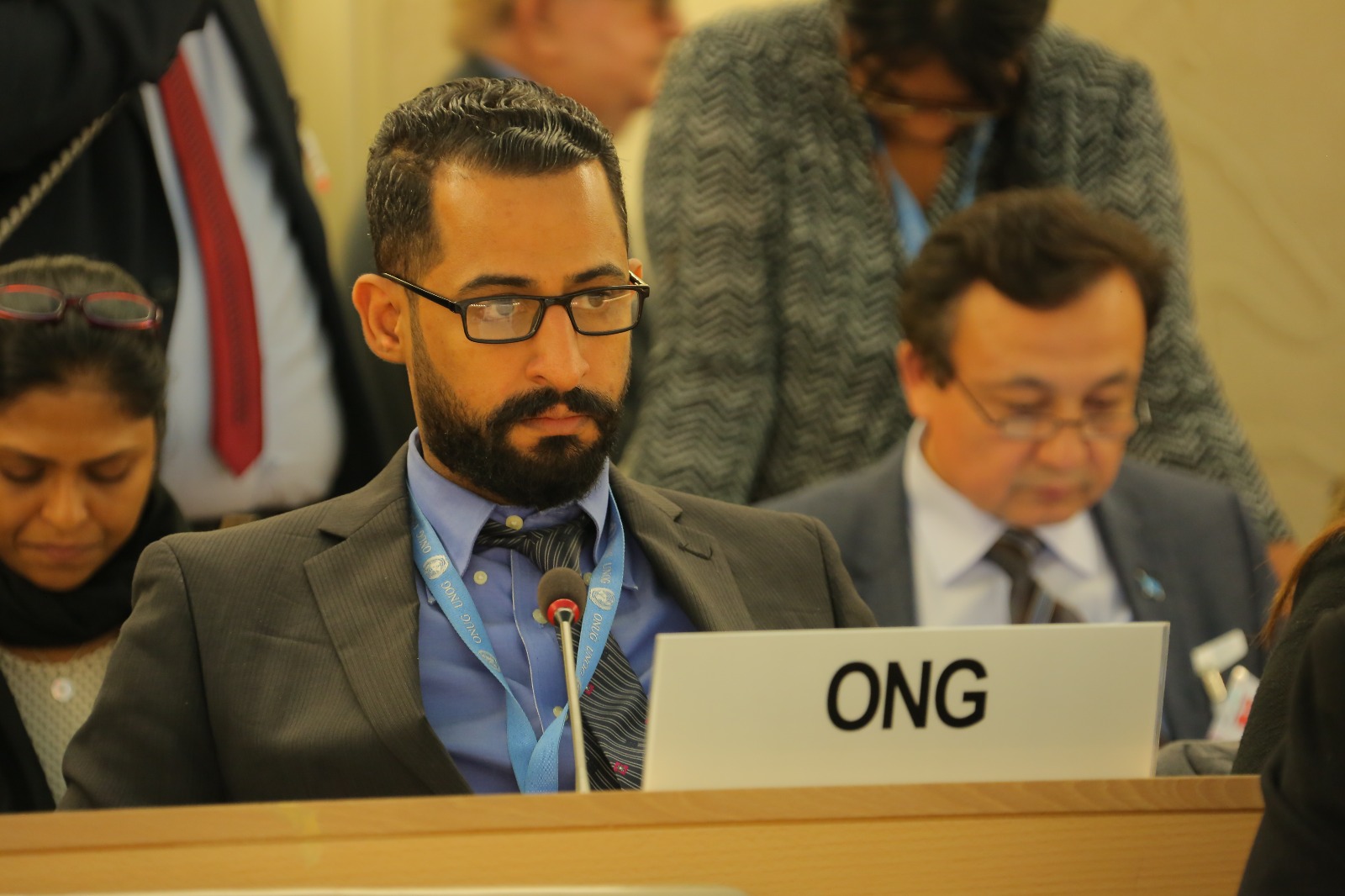On 19 September during the 36th session of the Human Rights Council, Yusuf al-Hoori, on behalf of Americans for Democracy & Human Rights in Bahrain, delivered an oral intervention during the Item 4 General Debate. In his intervention, al-Hoori discussed the mass hunger strike by prisoners in Jau Prison, as well as Bahrain’s militarization of its public health systems, including the ambulance service. Continue reading for the text of his intervention, or clicker here for a PDF of the text.
Mr. President,
Alsalam and ADHRB would like raise our concerns over poor conditions and ill-treatment for the thousands of arbitrarily detained prisoners of conscience in Bahrain, and the militarization of Bahrain’s healthcare system.
This month, in Bahrain’s Jau Prison, up to one thousand prisoners have begun an open hunger strike in protest over torture and degrading treatment, denial of medical care, religious persecution, excessive confinement in their cells, and greater restrictions on family visits. In an open letter, detainees decried the failure of Bahrain’s National Institute for Human Rights, the Ministry of Interior Ombudsman and the Prisoners’ and Detainees’ Rights Commission for failing to address repeated complaints of abuse. Given the failure of these accountability mechanisms, detainees report that they feel they have no recourse beyond peaceful protest and hunger strike.
We are further concerned by the militarization of Bahrain’s public health system. Today in Bahrain, all public hospitals have been transferred from the civilian control to military administration. Additionally, Bahrain’s ambulance system has also been shifted to the Ministry of Interior. The result has been that many Bahrainis fear seeking emergency medical care for fear of arrest and interrogation. Earlier this year, these policies contributed to the death of the 18 year old protestor, Mustafa Hamdan.
We therefore call on Bahrain to ensure the full rights of all detainees as laid out in the Nelson Mandela rules, and to respect international standards of medical impartiality.
Thank you.
Picture by Moosa Mohammed.





